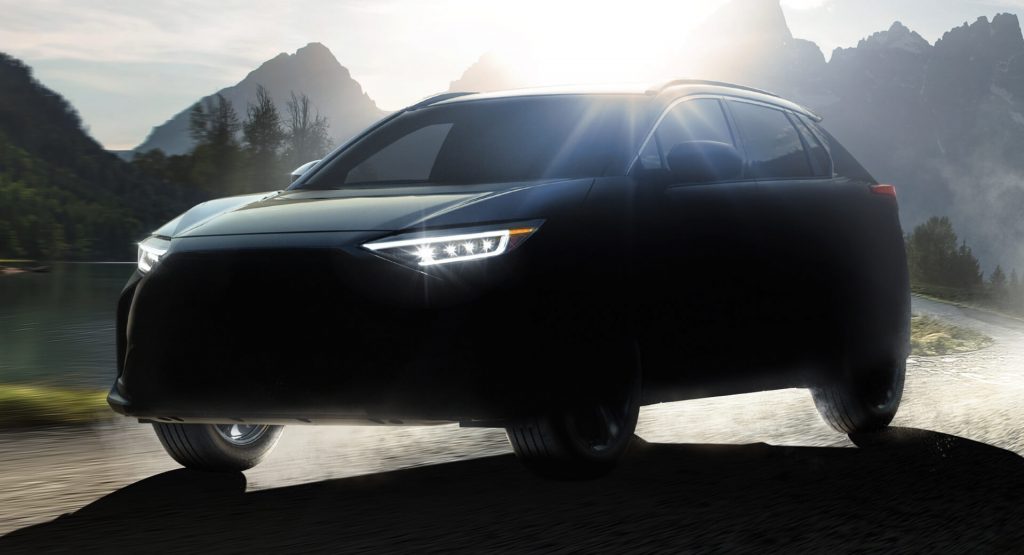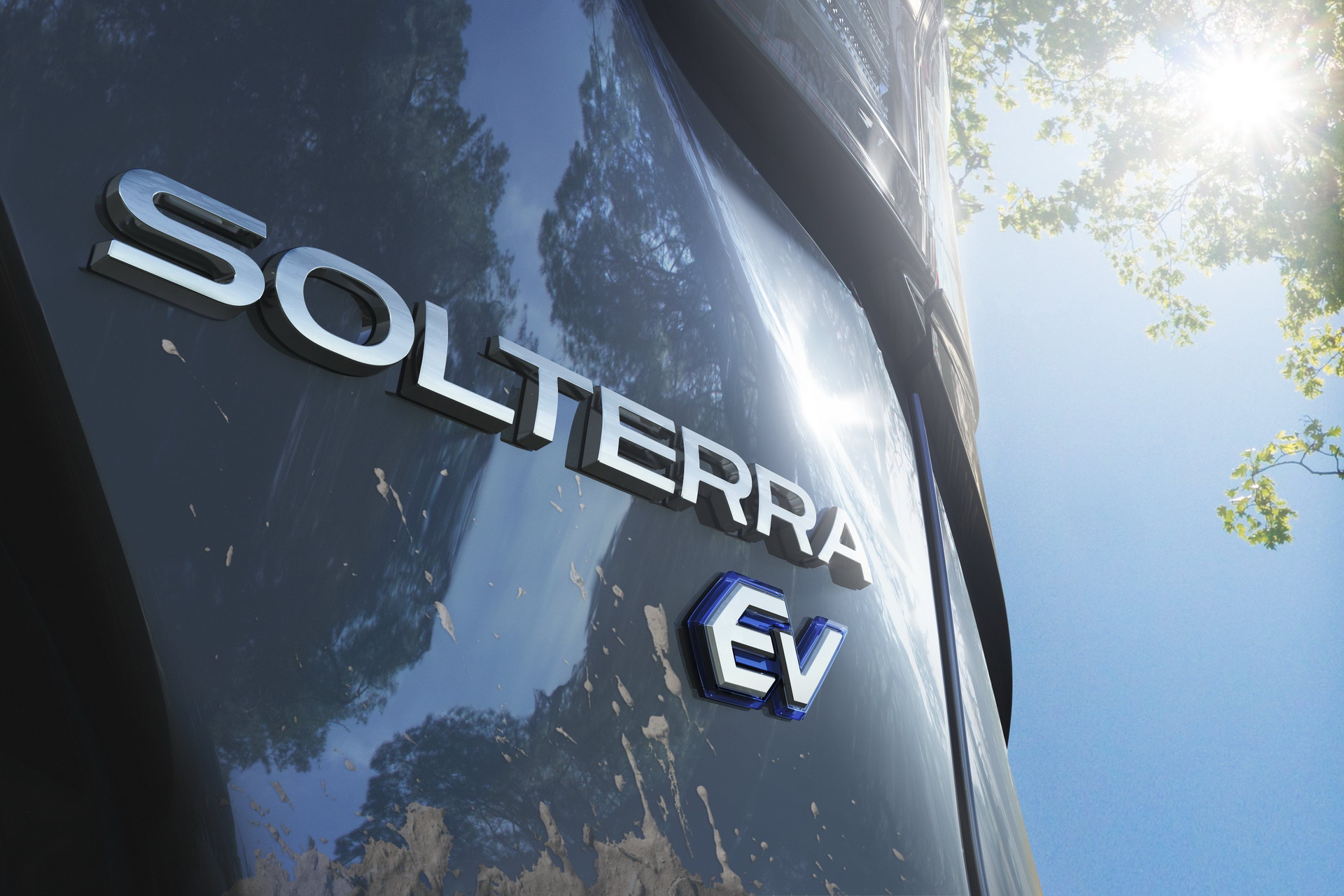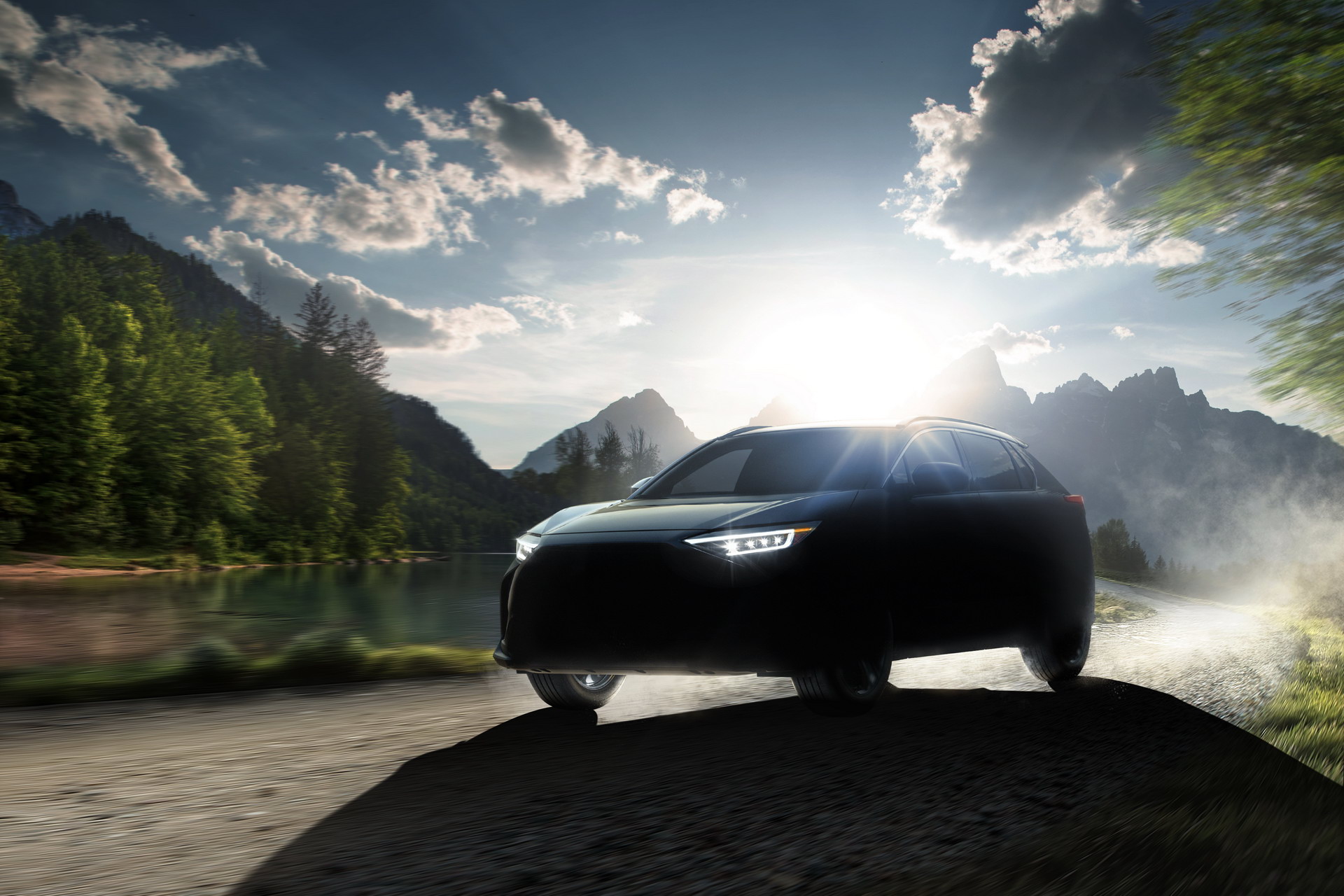Subaru will finally enter the electric game with their first zero-emission vehicle, the Solterra compact SUV, which was previously referred to as the Evoltis.
Closely related to the Toyota bZ4X Concept shown at Shanghai last month, it’s being co-developed by Subaru and Toyota, and will launch in mid-2022 in Europe, China, Japan, Canada and the United States.
The Solterra will be underpinned by an all-new EV-dedicated architecture, named the e-Subaru Global Platform (e-TNGA), and will benefit from Subaru’s AWD expertize and Toyota’s electrification technology. Thanks to its ability of “combining multiple modules and components, such as the front, center and rear of a vehicle”, the platform will support “various types of EVs”, the company said.
Read More: New Toyota bZ4X Concept Previews Subaru Co-Developed Electric SUV Coming In 2022
With Subaru keeping the technical details close to its chest for now, we don’t have any info about its powertrain. Nonetheless, it could arrive with dual-motor set-ups and all-wheel drive, while lesser versions will probably feature a single motor and two-wheel drive.
The Soltera’s name comes from combining the Latin words ‘Sol’ (Sun) and ‘Terra’ (Earth). The automaker “gave this name to the EV to appreciate mother nature and further advance the form of coexistence with it, together with our customers, and to represent our commitment to deliver traditional Subaru SUV’s go-anywhere capabilities in an all-electric vehicle”. In other words, despite being all-electric, the Solterra will be a decent off-roader too.
The two teaser pics released by Subaru reveal the compact proportions of the new battery-electric vehicle. It will have slim LED headlights, wide side creases in the front bumper, a muscular-looking hood and a roofline that is slightly arched towards the rear. It also has a generous ground clearance and what appears to be underbody protection. It’s worth noting that, perhaps unsurpisingly, the Solterra seems to be much more conventional than the clay model shown in January 2020.





